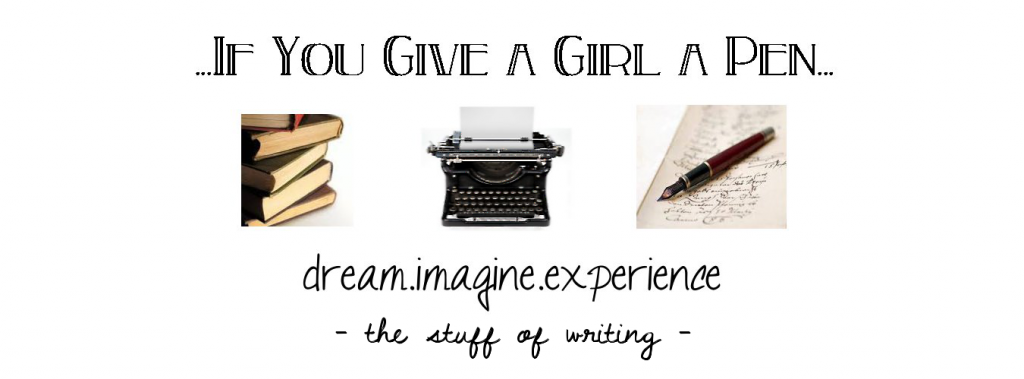I am a terrible arguer. I'm not usually the first to admit it, but I am. I get flustered and emotionally involved and when my temper is really up I make weak accusations that are easily deflected.
On the other hand, my siblings are great arguers. I don't know how they do it, but they tear my points apart like confetti and I always end up trying to figure out the best way to extricate myself from the situation with the least damage to my dignity.
One would think that I would have figured out "oh, just don't argue", but I'm also stubborn and quick-tempered. I don't mean to get into arguments but if pushed just a teensy bit too far I will wade into the fray.
Obviously, this bothers me - A LOT. I can't argue. I can't defend myself. I can't justify my temper because I always end up in the wrong. I'm just not smart that way. I used to wonder how I could become a better arguer {as if that would solve the problem...} but I never came up with a conclusive curriculum to follow.
And then today it occurred to me:
Why would I want to become a better arguer? As a Christian {and not speaking of persuasive or debate-style argumentation} I should have zero use for such a skill! There is absolutely no situation in a Godly life where a bolstered skill in "I'm right, you're wrong" argumentation should come in handy. I shouldn't take pride in destroying my opponent because I shouldn't be arguing at all!
Proverbs 25:21-22 says "if your enemy is hungry, give him food to eat; if he is thirsty, give him water to drink. In doing this, you will heap burning coals on his head, and the Lord will reward you."
I know this is a pretty obscure verse to pick out when discussing arguments {especially with verses like Proverbs 15:1 going around} but I personally think that coal heaping has a lot more context than food and water.
I hate it when I'm spoiling for a fight and my opponent refuses to be engaged. It's humiliating. There I am steaming like a kettle on the boil and they're as cool as a cucumber, taking the wind out of my sails and heaping coals of "this is how you should have responded to the situation" on my head.
The Holy Spirit doesn't miss a beat. If you take the wrong path, you're liable to get heaped with coals. So don't be the receptacle, be the heaper! Not only is it impossible to humiliate yourself by doing what's right, but you'll generally come out on top just by staying calm and also have nothing to regret or explain later on.
Until next time!
On the other hand, my siblings are great arguers. I don't know how they do it, but they tear my points apart like confetti and I always end up trying to figure out the best way to extricate myself from the situation with the least damage to my dignity.
One would think that I would have figured out "oh, just don't argue", but I'm also stubborn and quick-tempered. I don't mean to get into arguments but if pushed just a teensy bit too far I will wade into the fray.
Obviously, this bothers me - A LOT. I can't argue. I can't defend myself. I can't justify my temper because I always end up in the wrong. I'm just not smart that way. I used to wonder how I could become a better arguer {as if that would solve the problem...} but I never came up with a conclusive curriculum to follow.
And then today it occurred to me:
Why would I want to become a better arguer? As a Christian {and not speaking of persuasive or debate-style argumentation} I should have zero use for such a skill! There is absolutely no situation in a Godly life where a bolstered skill in "I'm right, you're wrong" argumentation should come in handy. I shouldn't take pride in destroying my opponent because I shouldn't be arguing at all!
Proverbs 25:21-22 says "if your enemy is hungry, give him food to eat; if he is thirsty, give him water to drink. In doing this, you will heap burning coals on his head, and the Lord will reward you."
I know this is a pretty obscure verse to pick out when discussing arguments {especially with verses like Proverbs 15:1 going around} but I personally think that coal heaping has a lot more context than food and water.
I hate it when I'm spoiling for a fight and my opponent refuses to be engaged. It's humiliating. There I am steaming like a kettle on the boil and they're as cool as a cucumber, taking the wind out of my sails and heaping coals of "this is how you should have responded to the situation" on my head.
The Holy Spirit doesn't miss a beat. If you take the wrong path, you're liable to get heaped with coals. So don't be the receptacle, be the heaper! Not only is it impossible to humiliate yourself by doing what's right, but you'll generally come out on top just by staying calm and also have nothing to regret or explain later on.
Until next time!





.jpg)
.jpg)
